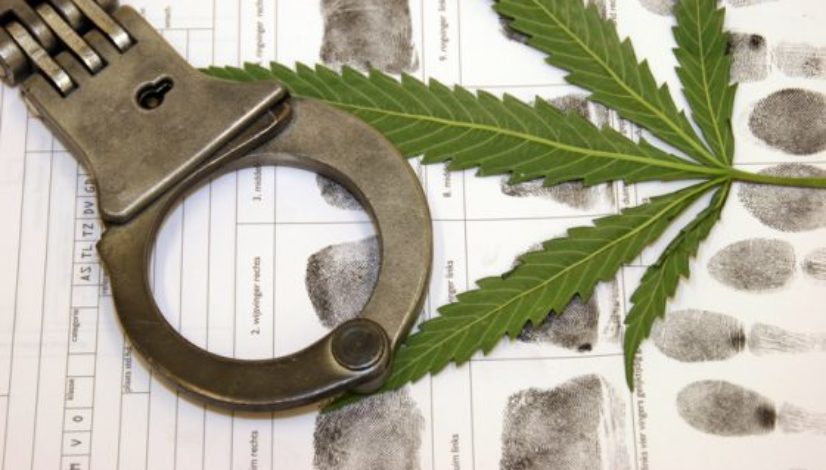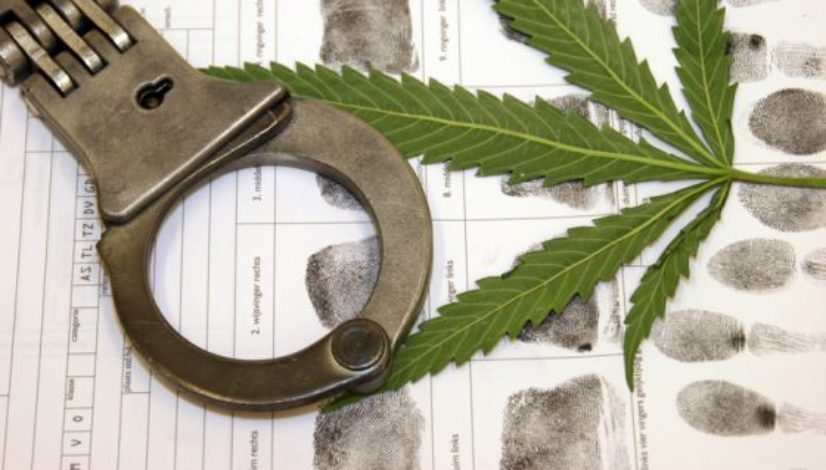Top law enforcement urge Trump, Sessions not to lock up low-level drug offenders

Published: Oct 19, 2017, 8:48 am • Updated: Oct 19, 2017, 8:52 am
By Tom Jackman, The Washington Post
WASHINGTON – A coalition of police chiefs and prosecutors from the nation’s biggest cities implored the Trump administration Wednesday not to return to the “lock ’em all up” crime-fighting policies of the 1980s and 1990s and not to waste resources on low-level drug offenders, as Attorney General Jeff Sessions has advocated recently.
The Law Enforcement Leaders to Reduce Crime & Incarceration sent a letter to Sessions and President Donald Trump, and held a summit meeting in Washington, D.C., in which they were adamant that crime has been steadily declining across America for a quarter-century, not spiraling upward as the president is sometimes inclined to claim. They think the decline is a result of smarter policing and more careful prosecution. But Sessions has called for increased drug prosecution and ordered federal prosecutors to seek the stiffest possible sentences in all cases, regardless of circumstance.
“The measure isn’t how many people we put in jail,” said Ronal Serpas, former superintendent of the New Orleans police and the founder of the Law Enforcement Leaders group. “The measure is whether the right people are put in jail. And that’s the people we’re afraid of, not the people we’re mad at.”
Police chiefs from Houston, San Francisco, Detroit and the District of Columbia, joined Serpas at the National Press Club in urging that the Trump administration support a recently introduced criminal justice reform bill, which would revamp federal sentencing guidelines and reduce mandatory minimums while giving judges greater sentencing discretion. Sessions strongly opposed the bill as a senator. The presidents of the National District Attorneys Association, the Association of Prosecuting Attorneys and Manhattan district attorney Cyrus Vance, a board member of Law Enforcement Leaders, also appeared at the press club to endorse the call for more focus on violent offenders and less time spent on turnstile jumpers and drunks.
More on sentencing
- NFL uses its muscle to endorse criminal justice legislation
- In spite of Jeff Sessions, criminal justice reform still moving forward
- Other Roots: World-wise Inge Fryklund on dogged quest to end destructive drug war
- Sessions isn’t making America safer. He might be making it more dangerous
- Jeff Sessions’ drug policies will expand black market, not reduce crime
“The message to the president is very clear,” Vance said. When arresting or prosecuting a case, authorities must ask two questions, Vance said: “Does it make us safer, and is it fair?”
Serpas said that almost 30 states have passed criminal justice reform, including his home state of Louisiana, which is planning to reduce its prison population by 10 percent. “When Louisiana can reform its criminal justice system, but the federal government can’t,” Serpas said, “we all have to go, ‘Come on.’ ”
In addition to sentencing reform, the letter to Trump and Sessions calls for prioritizing federal resources on violent crime. “Attorney General Sessions’ regular statements encouraging law enforcement to focus on drug and nonviolent offenders,” the letter states, “divert officers away from that vital mission” of combating violent crime. The letter also asks for increased resources for mental health and drug treatment, noting that “Republican governors have made treatment programs a centerpiece of their public safety efforts,” including Texas with then-Gov. Rick Perry. The chiefs say that the Trump administration’s proposed 2018 budget cuts nearly $400 million from the federal Substance Abuse and Mental Health Services Administration at a time of rampant opioid abuse.
The letter also calls for increased support for community policing, and expanded reentry programs for prisoners to reduce recidivism. “We have to find ways,” San Francisco Police Chief Bill Scott said, “to reduce unnecessary arrests and unnecessary jail time. That gets into closing the revolving door of recidivism.” Scott said San Francisco had launched a “jail re-envisioning initiative” using multiple social service agencies to keep prisoners from returning to jail.
“I think we have a chance as law enforcement leaders to really change the landscape in criminal justice,” Scott said.
Serpas, who also served as police chief in Nashville, Tennessee, and head of the Washington State Patrol, said that “meaningful rehabilitation and reentry” for prisoners is a viable concept. “For people who want it, it works,” Serpas said. “They can be successfully helped, no doubt about it.”
Richard Stanek, the sheriff of Hennepin County, Minnesota, said local courts need to be more involved, particularly those who are only open eight hours a day during the work week, while police and sheriffs are operating, and arresting, 24 hours a day. Closed courts mean arrestees sit in jail far longer than needed because no judge is available to release them. “Forty hours a week isn’t good enough,” Stanek said, “when residents are subject to arrest 24/7.”
The letter to Trump and Sessions doesn’t mention gun control issues, though both District Police Chief Peter Newsham and Houston Police Chief Art Acevedo said it was time to revive that conversation. “If we’re really interested in impacting violent crime,” Acevedo said, “let’s have some gun sense.”
“Having the government issue licenses before someone is able to possess and carry firearms is critically important,” Newsham said. D.C.’s strict gun laws have come under attack in the courts in recent years.
Both chiefs and prosecutors stressed that there was bipartisan political support in their groups for the measures proposed, and for not going back to the “overly punitive” approaches launched in the crack-drenched years of the 1980s and 1990s, with heavy emphasis on mass arrests and long mandatory minimum sentencing.
“The strategies we’ve been applying for the last couple decades actually worked,” Acevedo said, as crime nationwide steadily declined, with occasional upward jags in cities such as Chicago and Baltimore. “We do evolve,” Serpas said. “We do get smarter.”
Serpas said the chiefs’ group has lobbied members of Congress and testified in favor of the justice reform bill, and “we would enjoy the opportunity to sit down with President Trump.” Michael Freeman, the Hennepin County, Minnesota, district attorney and head of the National District Attorneys Association, said his group had met with Sessions and “he does understand our work.” He said his goal was to limit the partisanship of the prosecutors’ group, and that “justice doesn’t have an ‘R’ or a ‘D’ next to it.”
An interesting participant in Wednesday’s meeting at the press club was Koch Industries, the Kansas-based company known for its heavy conservative political involvement but which is not always enamored of Trump or his policies. Serpas said Koch has been supportive of the chiefs’ group from the start, and company general counsel Mark Holden moderated the prosecutors’ panel. Holden said Koch’s “involvement is based on our goal of removing barriers to opportunity for all Americans, especially the least advantaged. We want to end the two-tier justice system that provides the rich and connected far better treatment than the poor, because it is immoral, constitutionally dubious, and fiscally ruinous.”
Holden rattled off statistics about the U.S.’ position as the world leader in incarceration, and said: “I’m really hopeful that the administration and the Department of Justice will listen to you all. Your voice matters the most.”
Topics: arrests, criminal justice system, incarceration rates, Jeff Sessions, police, prison, racial disparity, sentencing reform, Trump administration, war on drugs




